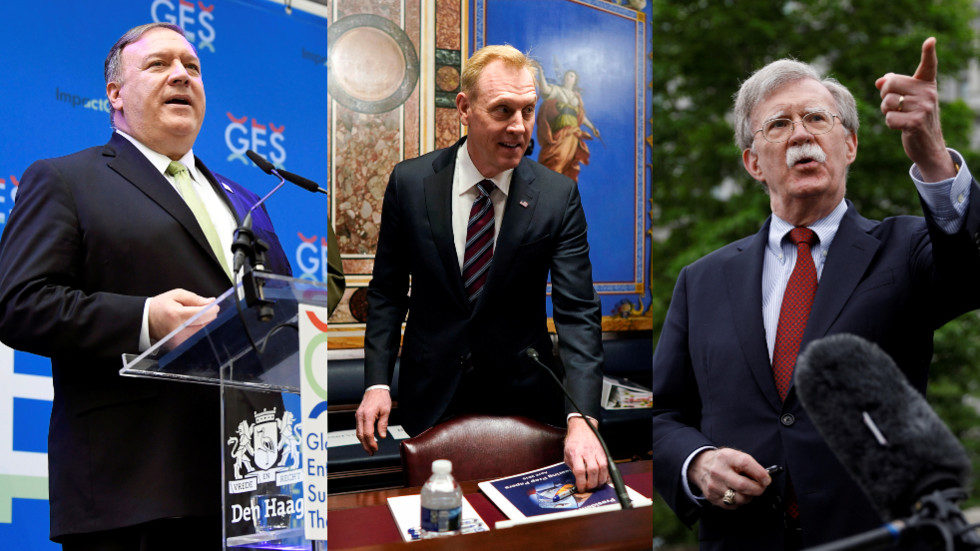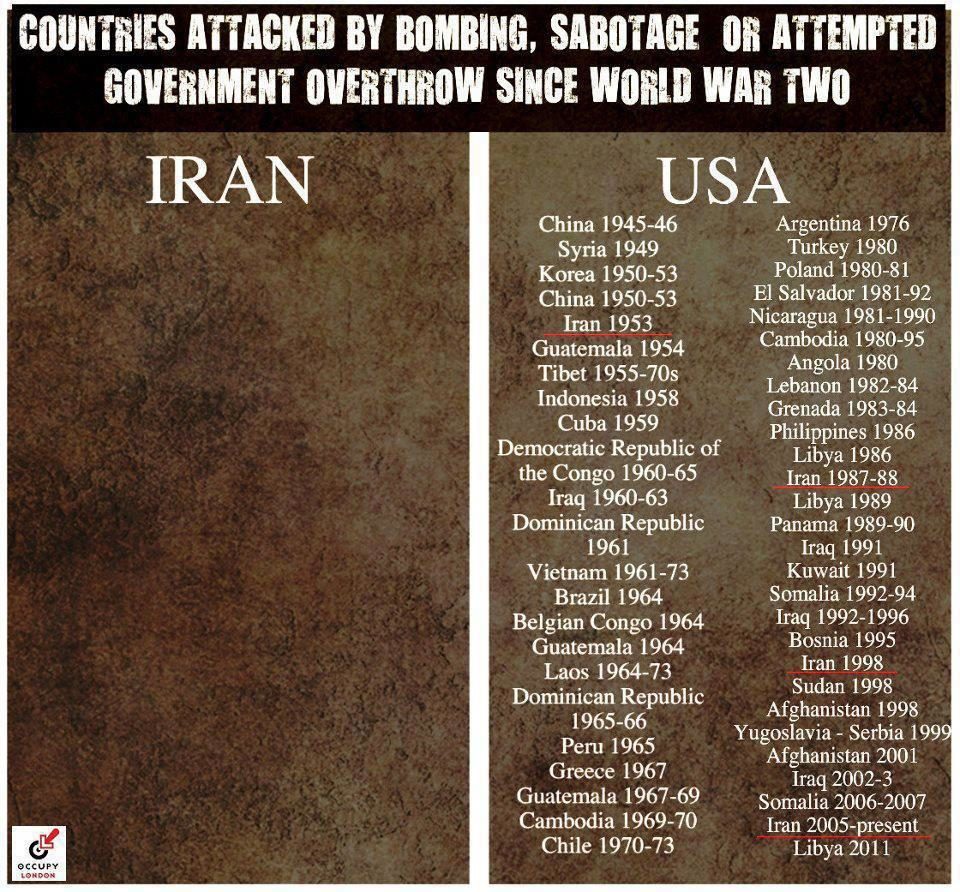
"The focus for myself and Ambassador Bolton and Secretary Pompeo is to build international consensus to this international problem," acting Defense Secretary Patrick Shanahan told reporters outside the Pentagon on Friday.
Shanahan went on to say that the Pentagon would contribute to this effort by sharing intelligence with allies, as it did Friday when it released a video it claims shows Iran's Revolutionary Guards (IRGC) removing an undetonated mine from the hull of one of two tankers attacked on Thursday.
For National Security Advisor John Bolton and Secretary of State Mike Pompeo, consensus-building will likely take a different shape. Pompeo has already blamed Iran for the attack, citing non-specific "intelligence" and Tehran's alleged history of "unprovoked attacks" in the region. The State Secretary has jetted off in search of consensus before; taking a tour of the Middle East at the beginning of the year to unite the US' Arab allies against Iran.
Bolton has been clamoring for war with Iran for over a decade, advocating pre-emptive strikes on the Islamic Republic since 2008. Shaping consensus for him will likely entail more beating of the war drums on the international stage.
Rallying allies
Why build consensus at all? There are two reasons: moral and material.
The US paints itself not as the "world police" but as a moral beacon, an exemplar for "democracies" to aspire to and follow, so the more allies sign on to its cause the more legitimate it looks.
Comment: In other words, the US needs allies in a war on Iran for propaganda purposes.
On a more practical level, going against Tehran is not an endeavor the US can do alone. Iran has a population of nearly 90 million people, the world's 14th-most powerful military, a navy and array of land-to-sea missiles capable of inflicting devastating losses on American ships in the Persian Gulf, and the ability to close off the Strait of Hormuz, through which a fifth of the world's oil transits.
Comment: Which is quite likely why there has yet to be a war launched against Iran by the US; like any other bully, the US wants an opponent it can beat.
Put simply, the US needs allies on its side, believing its story and fighting its fight, either diplomatically or militarily.
Demonizing adversaries
When Washington-backed opposition leader Juan Guaido declared himself President of Venezuela in January, the US was waiting in the wings to recognize him, having strangled the country with economic sanctions for years in preparation for just this moment, allowing it to declare President Nicolas Maduro had run the country into the ground with his evil corrupt socialist dictatorship, Venezuelans were eating their dogs and zoo animals, and the time had come to recognize this fresh young face whom only a fifth of the country had ever heard of.
Additionally, the US had a pre-selected slate of allies on hand in order to give the appearance of massive international support: the Lima Group, consisting of 12 South and Central American governments and Canada, was formed in 2017 with the aim of securing regime change in Venezuela. After they jumped on board the Guaido train, a handful of European nations also offered their recognition, though the EU officially hedged its bets by calling for a 'fair election'. The UN, notably, did not offer its endorsement of this regime change 'consensus'.
When Syrian leader Bashar Assad was accused of using chemical weapons on the town of Douma last April, the United States reached out to just Britain and France. Though Assad's guilt had not been ascertained, and remains in doubt, the trio released a joint statement of condemnation and battered Syrian military and scientific targets with airstrikes.
The cruise missile stunt did not require support from any other countries - or UN approval, apparently - while the "international consensus" to blame everything on Assad has been established long ago, in the early stages of the war that broke out in 2011.
The invasion of Iraq in 2003 was a different story, and Washington spent months beforehand hammering home the line that Saddam Hussein was harboring weapons of mass destruction, and was working with Al-Qaeda terrorists. Neither statement was true, and skepticism abounded, but the message was repeated and 39 allies eventually joined the 'Coalition of the Willing' to aid the US war effort.
Incidentally, John Bolton was a member of the Bush administration at the time, serving as undersecretary of state for arms control and international security affairs while Bush delivered his "Axis of Evil" speech to the world.
If history has one abiding lesson to offer here, it's to always be wary of any talk of consensus from Washington. With storm clouds gathering over the Gulf of Oman, Shanahan's statement could possibly be viewed as a rare telegraphing of intent, and a sign to watch out for the next "axis of evil" speech.




The thing is, many are tired of the BS from Washington, and it is a tired old trick. It doesn't work anymore.